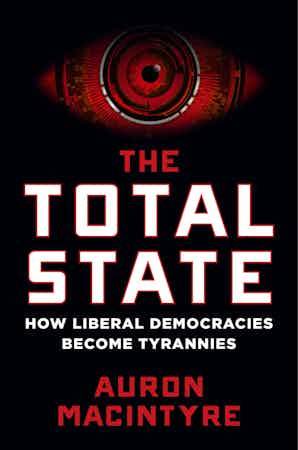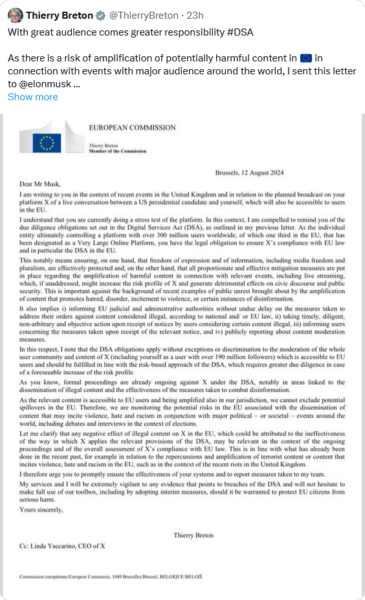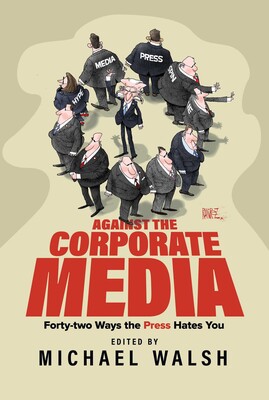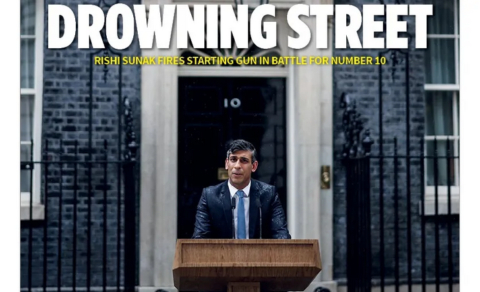 We do not see the Dothraki engage in large-scale warfare in the books; we see the aftermath of such fighting (AGoT, 555ff) or it occurs “off-screen” (ASoS, 487), but we do not see it. The closest we get is Jorah’s description of them, that they are “utterly fearless … [they] fire from horseback, charging or retreating, it makes no matter, they are full as deadly … and there are so many of them” AGoT, 325-6). Evidently they also scream on the attack, since their warriors are repeatedly called “screamers”.
We do not see the Dothraki engage in large-scale warfare in the books; we see the aftermath of such fighting (AGoT, 555ff) or it occurs “off-screen” (ASoS, 487), but we do not see it. The closest we get is Jorah’s description of them, that they are “utterly fearless … [they] fire from horseback, charging or retreating, it makes no matter, they are full as deadly … and there are so many of them” AGoT, 325-6). Evidently they also scream on the attack, since their warriors are repeatedly called “screamers”.
As a description, it is hard for this to be very much wrong because it is so very vague, but the attentive reader will note that Jorah’s assertion that there are “so many” must be wrong for either Eurasian Steppe Nomads or Great Plains Native Americans, both of whom were routinely outnumbered by settled enemies, often dramatically so. Let’s put a pin in that, though, because of course while Martin gives only vague description of Dothraki warfare, the show, Game of Thrones, shows it to us on screen quite vividly.
We see a bit of Dothraki warfare in S6E9 when Daenerys’ Dothraki charge down the Sons of the Harpy at Mereen, but the really sustained look at how they fight has to wait for S7E4 and the Loot Train Battle and S8E3 and the Battle of Winterfell, both of which, happily, we have already discussed! In all three cases, the Dothraki do exactly the same thing. They charge, in a pell-mell rush, while giving high-pitched war-calls. While some of the Dothraki may fire arrows on the approach (they have them stand up to do this, which is not how actual Mongols or Native Americans fired from horseback; it looks cool and is stupid, like most of Game of Thrones season 7 and 8), they otherwise charge directly into contact and begin fighting from horseback with their arakhs as the primary weapon.
This is not how horse-borne nomads fought.
As we’ve discussed repeatedly before, the key weapon for Steppe nomads was the bow, shot from horseback at high speed (on this, note May, “The Training of an Inner Asian Nomad Army” JMH 70 (2006) and Mongol Art of War (2007)). Thus the crucial maneuver was the caracole, where the rider approaches the target at high speed, firing arrows as he goes, before making an abrupt turn (it is actually the turn that is technically called a caracole, but the whole tactic goes by this name) and retreating, before trying again. Pulling this tactic off en masse required a great deal of both individual skill at horsemanship and archery, but also quite a lot of group cohesion and coordination, since a collision of horses at speed is very likely to be fatal for everyone – humans and horses – involved.
This tactic can then be repeated – charge and retreat, charge and retreat – until the psychological toll on the defender becomes too great and they either break and retreat or else charge out to try to catch “retreating” nomads. In either case, it was at that moment when the Steppe nomads could press home and destroy the disorganized enemy. These tactics were brutally effective, but they were also a necessary casualty control measure. Shock combat – that is massed melee combat in close quarters – is simply far too lethal for low-population nomadic societies to sustain in the long-term on the regular (a hoplite battle might result normally in c. 10% casualties for instance (but note this discussion of that figure) – think of what that would mean in a society where 100% of adult males participate in each battle – you’d run out of men pretty quickly!).
And fascinatingly, we can actually see that calculus play out in North America, where the arrival of firearms, which suddenly make pitched “missile exchange” battles (especially on foot) as lethal as shock combat (it seems notable that the introduction of musketry into Old World warfare did not come with a significant increase or decrease in battlefield lethality, at least until the rifled musket – on that, see B. Gibbs, The Destroying Angel (2019), but also note E.J. Hess, The Rifle Musket in Civil War Combat: Reality and Myth (2008)), the pitched battle vanishes. It was simply too lethal to be a viable option in the long term for societies with low population density and very high military participation rates.
Instead, the raid came to dominate warfare on the Great Plains, with mass-casualty events generally being restricted to situations where a raiding party caught an enemy group unawares (McGinnis, op. cit., 45-6, 57-9). To be clear, that’s not to say the Great Plains Native Americans were peaceful, after all the goal of all of this raiding was to cause one of those rare mass-casualty surprise attacks and – as McGinnis notes again and again, warfare was part of the Plains Native American way of life, as the social status of males was directly and powerfully tied to success in war.
In short, the need to keep lethality relatively low is one of the most important factors which shaped nomadic horse-borne warfare, both on the Steppe and on the Great Plains. And here is where I think that even Martin’s description – which could, if read with friendly eyes, be taken as a description of the Steppe caracole described above – falls short: the Dothraki are dangerous because they are so many. But actual nomadic warfare was fundamentally conditioned by the shortage of men created by the low population density of the Steppe or the Great Plains. This weakness could be somewhat made up for by making every male into a warrior, but only if casualty rates remained low. A war of attrition with settled peoples would wear the nomads out quickly, which is why such attritional warfare was avoided (unless you are the Mongols, who use the sedentary armies of conquered states, notably using the armies of Northern China to conquer Southern China; that said, Drogo is clearly not Chinggis Khan or any such sort of Khal-of-Khals)
So where does this model of warfare come from? Well, when it comes to the show, we needn’t actually look far, because the creators tell us. The director of the episode, Matt Shakman, noted in an interview that his primary reference for the Dothraki charge was John Ford’s Apache attack in his 1939 film Stagecoach (you can see the scene he means here). And in the S7 special feature, “Anatomy of a Scene: The Loot Train Attack”, David Benioff notes that the charge “definitely got a bit of that western feel” while VFX producer Steve Kullback says, of the battle, it’s “sort of like Cowboys and Indians”.
In Stagecoach (1939), the Apache aren’t a real humanized culture, but an elemental force of destruction. Their charge at the titular stagecoach is essentially mad and heedless of all losses (in the same featurette, Camilla Naprous, Game of Thrones‘ horse master, describes the Dothraki as “they’re just these absolute mad men on horses”, in case you thought that connection was only subtext). The position of “Indians” as particularly “rapey” is also explicit in Stagecoach, where the one of the white male defenders of the coach saves his last bullet to spare the one woman, Mrs. Mallory, from being captured and raped by the approaching cavalry [NR: I think Dr. Devereaux means “Indians” here, but given the historic reputation of the cavalry …] (the concern about white women being raped by non-white men being a paramount fixation of early American film; see also The Birth of a Nation (1915); or, you know, don’t.) And the tactics (or lack thereof) of the Dothraki, charging madly forward with no order or concern for safety, also map neatly on to Stagecoach‘s Apache attack (and not on to actual Apache attacks).
I don’t think this lazy use of old Western tropes is limited to merely the show, however. Having written this far, I find myself convinced that there is a longer article or perhaps a video-essay waiting to be written by a different sort of scholar than myself – that is, a film historian – on how Martin’s depiction of the Dothraki and their world is fundamentally rooted in the racist tropes of the Hollywood Western and its portrayal of Native Americans in a frontier environment where, as Sergio Leone put it, “life has no value“. Quite a lot of parallels with Martin’s Dothraki emerge after even a brief overview of the representation of Native Americans in film. The emphasis on taking captives (especially white women) to no apparent purpose besides sexual violence, the distinctive “screaming” of Dothraki warfare (which, yes, Native Americans used a range of intimidating war cries, but so did basically everyone else in the pre-modern world, so why are the Dothraki the only ones who do it in Westeros?), its lack of tactics or order, and – as we’ve discussed already – the grossly simplified form of dress all seem to have their roots in racist Hollywood depictions of Native Americans. The Dothraki Sea is, essentially a “Cavalry and Indian Story” with the cavalry removed.
That is not a pure creation of Benioff and Weiss. The show simply takes that subtext and makes it text.
Bret Devereaux, “Collections: That Dothraki Horde, Part IV: Screamers and Howlers”, A Collection of Unmitigated Pedantry, 2021-01-08.



















